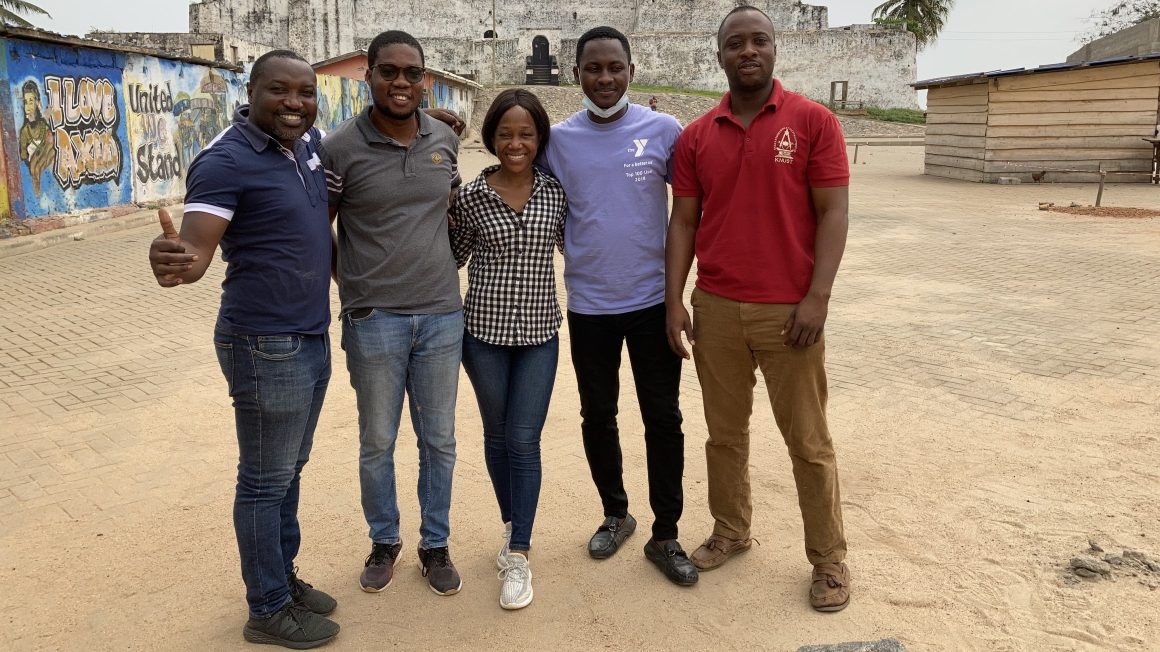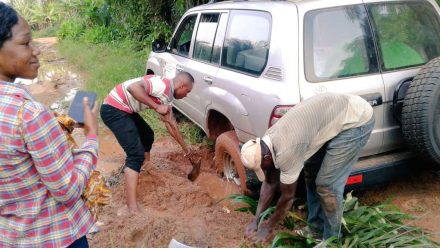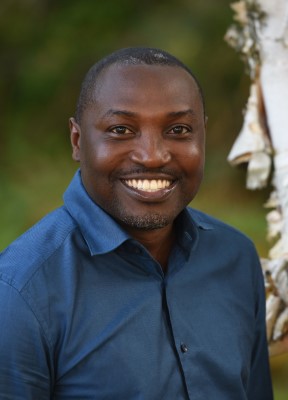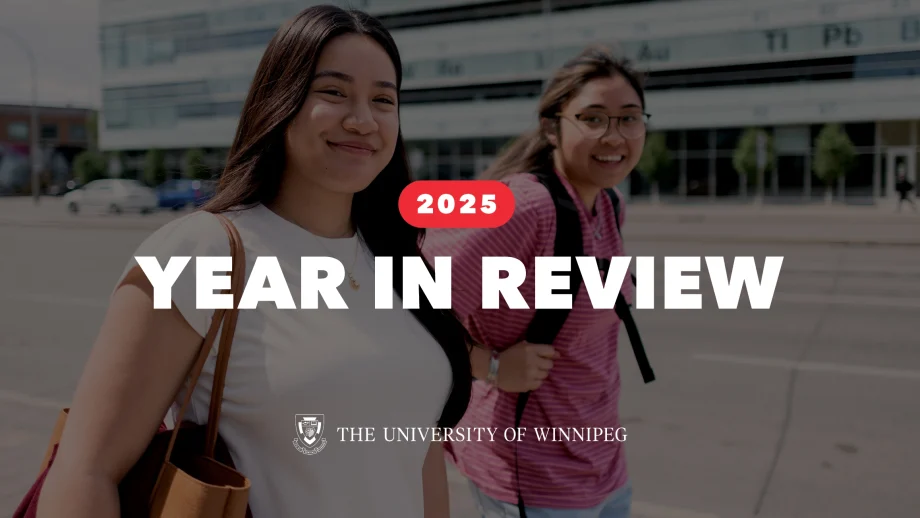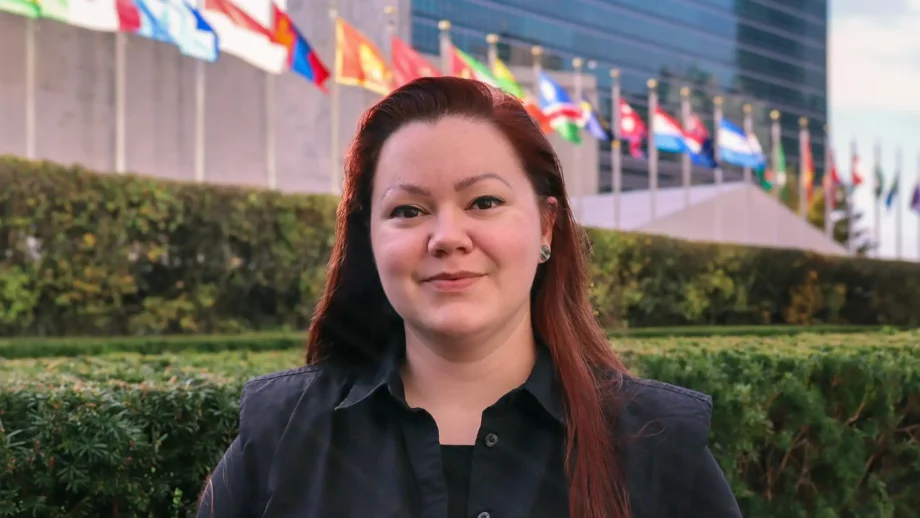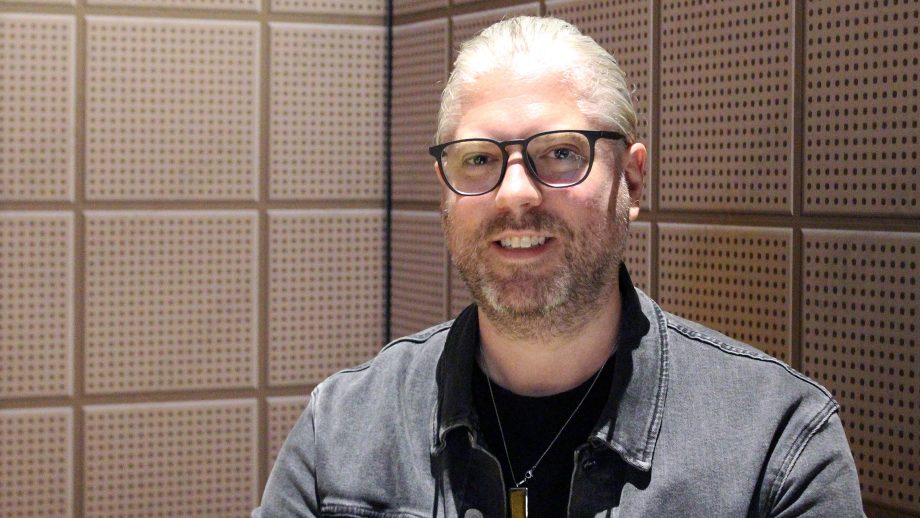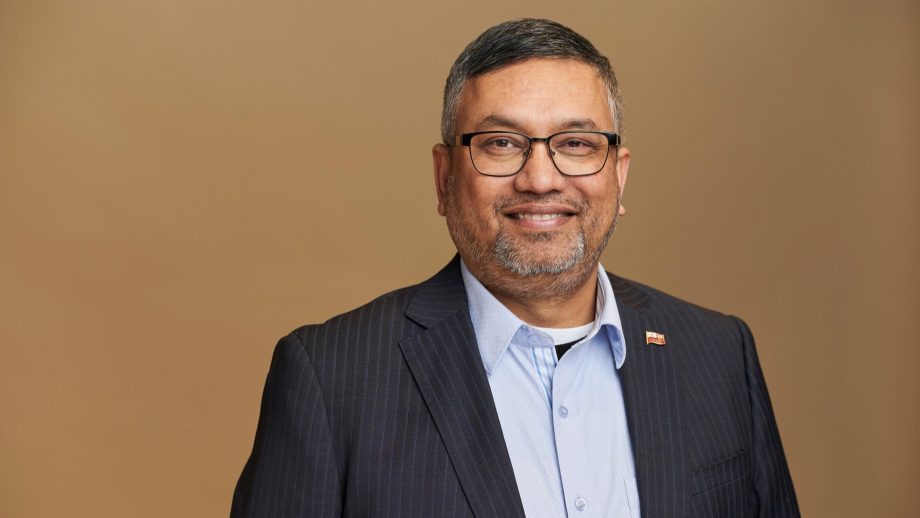When University of Winnipeg Human Rights researcher Dr. Kristi Kenyon heard about Dr. Alex Kwarteng‘s Lymphatic Filariasis (LF) research, and the challenges of reducing stigma and improving community understanding of the condition, a lightbulb went off.
We aim to improve the health and wellbeing of people living with Lymphatic Filariasis.
Dr. Kristi Kenyon
“I’d been working on HIV research which, although very different, faces similar issues,” she said. “I asked whether he’d considered collaborating with a social scientist – and from there we began to sketch out a project aimed at meeting a real need in the lives of people living with a highly stigmatized health condition – and a chance to do more by bringing our areas of expertise together.”
LF is one of the world’s leading causes of permanent and long-term disability. It is a neglected and stigmatized mosquito-borne illness that damages the lymphatic system, leading to swollen and disfigured limbs, breasts, and genitals. In addition to its debilitating physical effects, the disease also leads to harmful social isolation and stigmatization.
The project, Combating Stigma and Social Isolation Among People Living with Lymphatic Filariasis in Ghana through Culturally Appropriate Interventions, received a $355,725 boost from the CIHR thanks to a 2019 Project Grant to develop a culturally sensitive, evidence-based intervention to promote the health and wellbeing of people with LF. Delayed due to Covid-19, data collection is now underway.
“Without the support of CIHR, this international, interdisciplinary project simply would not be possible,” said Kenyon, who is co-principal investigator along with Kwarteng, a senior lecturer at Kwame Nkrumah University of Science and Technology in Ghana.
People living with LF typically experience a triple burden; the physical impact of the disease, social stigma, and declining mental health.
“Current literature is treatment-focused and largely neglects the cultural and social context of the illness, with limited attention paid to stigma and few stigma-oriented interventions,” said Kenyon. “Drawing together an interdisciplinary team of researchers from Canada and Ghana, our project addresses five aims focused on health, wellbeing, social inclusion, and cultural understandings of LF with a geographic focus on areas of Ghana particularly hard hit by the disease.”
Working together to reduce stigma
The research team includes co-applicants Dr. Mary Asirifi, MacEwan University; Dr. Veronica Fynn Bruey, Athabasca University; Dr. Regiane Garcia, affiliated researcher at Global College and Simon Fraser University; and Dr. Colleen McMillan, University of Waterloo; as well as collaborator Dr. Jonathan Roberts, Mount Saint Vincent University.
With their combined expertise in social work, law, science, health, and social sciences, the research team hopes to make a difference in the lives of more than 120 million people in 72 countries worldwide who are living with LF.
Kwarteng notes, “this Interdisciplinary approach to study LF has been eye-opening. I wish I knew some of the things I do now in LF research some 10 years back.”
Nursing scholar Mary Asirifi, agrees, “Working with researchers with various areas of expertise provides me the opportunity to gain new knowledge in research methodologies while sharing my experience and expertise with the team in conducting research with health care workers in Ghana.”
Roberts, a historian of medicine explains, “Only a multi-pronged approach, with a healthy respect for both traditional healing and western medical perspectives, can get to the bottom of the stigma associated with this disease.”
Reflecting on her background in social work and participatory methods, McMillan adds, “This project symbolizes the harmonious merger of methodological approaches that honour the lived experience of those who live with LF and epitomizes a truly collective and participatory approach.”
For Fynn Bruey involvement in the project is very personal, “I survived nine years of being a refugee in Ghana. As a pan-Africanist who strongly believes in the African philosophy of Sankofa (returning to my traditional roots) and Ubuntu (I am because we are), being a part of this research offers a unique opportunity to give back to the country and its people in a meaningful way.”
Garcia also says the project is close to her heart. She has first-hand experience witnessing the impacts of HIV-related stigma on the health and wellbeing of the people she worked with in Brazil at the beginning of her legal career.
This passion and commitment is shared by the data collection team of Emmanuel Kobla Atsu Amewu, Priscilla Kini, Samuel Apoku Asiedu, Ebenezer Asiedu, Efiba Vidda Kwarteng, and Winnipeg-based research assistant Ada Chukwudozie.
Samuel Apoku Asiedu explained, “I think it was a mixed feeling of hope and desperation as I thought about the LF patients waiting for us in the communities.”
Developing culturally sensitive interventions
The way individuals understand and experience LF is varied.
The team’s preliminary research shows, for example, that people living with LF in the study area often do not understand the disease in the same way as their health care practitioners – often attributing it to spiritual causes or cold weather. Gender identity also affects how people experience the disease both physically and socially.
Little is known about how transgender and nonbinary people experience LF. With this in mind, the research team is carrying out a series of focus groups, one-on-one interviews, and employing arts-based methods that create space for people with LF of different gender identities to share their experiences.
Through this study, the team hopes to better understand community perceptions, interpretations, and cultural perspectives of the disease and, ultimately, design a framework for developing culturally appropriate and effective interventions that can be applied in other African countries where LF is endemic.
“We aim to improve the health and wellbeing of people living with LF through an increased understanding of the underlying causes of stigma and isolation, the development, implementation, and evaluation of a culturally sensitive intervention to prevent and alleviate these experiences and the creation of a framework to help adapt this intervention to other contexts,” she said.

